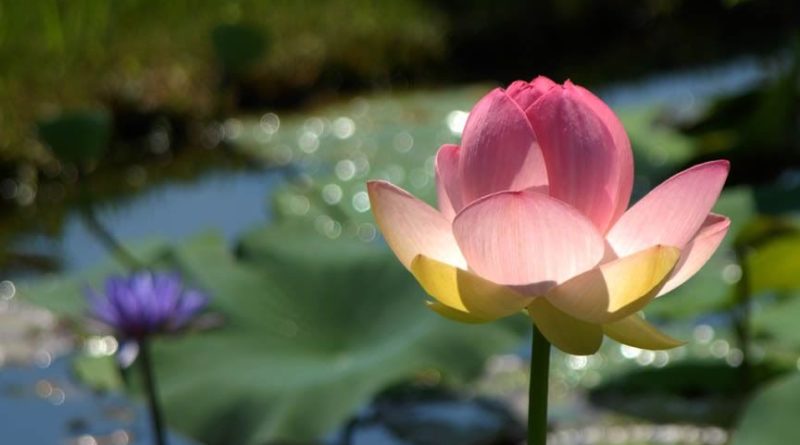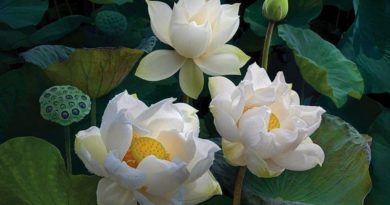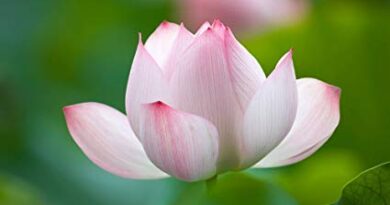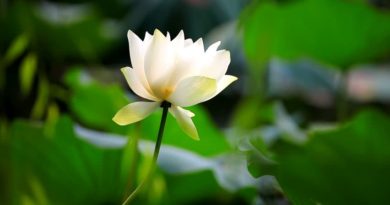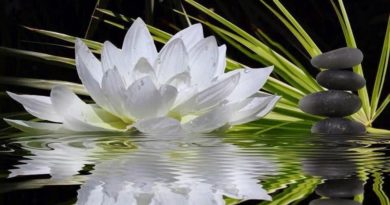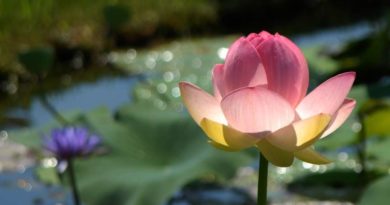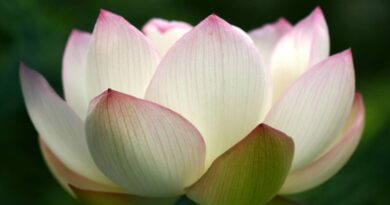Going For Refuge & Taking The Precepts – V. The Function Of Going For Refuge – Bhikkhu Bodhi
V. THE FUNCTION OF GOING FOR REFUGE
The going for refuge is the door of entrance to the teaching of the Buddha. It functions in the context of the teaching as the entranceway to all the practices of the Buddhist discipline. To engage in the practices in their proper setting we have to enter them through the door of taking refuge, just as to go into a restaurant and have a meal we have to enter through the door. If we merely stand outside the restaurant and read the menu on the window we may come away with a thorough knowledge of the menu but not with a satisfied appetite. Similarly, by merely studying and admiring the Buddha’s teaching we do not enter upon its practice. Even if we abstract certain elements of practice for our personal use without first taking refuge, our efforts cannot count as the actual practice of the Buddha’s teaching. They are only practices derived from the teaching, or practices in harmony with the teaching, but so long as they are not conjoined with a mental attitude of taking refuge in the Triple Gem they have not yet become the practice of the Buddha’s teaching.
To bring out the significance of going for refuge we can consider a contrast between two individuals. One meticulously observes the moral principles embedded in the five precepts (pañcasila). He does not formally undertake the precepts in the context of Buddhist ethical practice but spontaneously conforms to the standards of conduct they enjoin through his own innate sense of right and wrong; that is, he follows them as part of natural morality. We might further suppose that he practices meditation several hours a day, but does this not in the framework of the Dhamma but simply as a means to enjoy peace of mind here and now. We can further suppose that this person has met the Buddha’s teaching, appreciates it and respects it, but does not feel sufficiently convinced to acknowledge its truth or find himself impelled to go for refuge.
On the other hand let us suppose there is another person whose circumstances prevent perfect observance of the precepts and who cannot find leisure for practicing meditation. But though he lacks these achievements, from the depths of his heart, with full sincerity, understanding, and dedication of purpose he has gone for refuge to the Triple Gem. Comparing these two persons we can ask whose mental attitude is of greater long-term spiritual value — that of the person who without going for refuge observes the moral principles embedded in the five precepts and practices meditation several hours a day, or that of the other person who cannot accomplish these practices but has sincerely gone for refuge to the Buddha, Dhamma, and Sangha. No clear pronouncement on this case is found in the suttas and commentaries, but enough indication is given to support an intelligent guess. On this basis we would say that the mental attitude of the second person, who has gone for refuge with clear understanding and sincerity of heart, is of greater long-term spiritual value. The reason for such a judgment is as follows.
As a result of his moral and meditative practices the first individual will enjoy peace and happiness in his present life, and will accumulate merit which will lead to a favorable rebirth in the future. However, when that merit ripens, it will become exhausted and expend its force without leading to further spiritual development. When the fortunate rebirth resulting from the merit comes to an end, it will be followed by rebirth in some other plane, as determined by stored-up kamma, and the person will continue to revolve in the cycle of existence. His virtuous undertakings do not contribute directly to the transcending of the samsaric round.
On the other hand the person who has sincerely gone for refuge to the Triple Gem, without being capable of higher practices, still lays the foundation for spiritual progress in future lives merely by his heartfelt act of seeking refuge. Of course he has to reap the results of his kamma and cannot escape them by taking refuge, but all the same the mental act of going for refuge, if it is truly the focus of his inner life, becomes a powerful positive kamma in itself. It will function as a link tending to bring him into connection with the Buddha’s dispensation in future lives, thereby aiding his chances for further progress. And if he fails to reach deliverance within the dispensation of the present Buddha it will very likely lead him to the dispensations of future Buddhas, until he eventually reaches the goal. Since this all comes about through the germination of that mental act of going for refuge, we can understand that the taking of refuge is very essential.
The importance of going for refuge can be further gauged through a textual simile comparing faith to a seed. Since faith is the motivating force behind the act of refuge, the analogy may be transferred to the refuge-act itself. We explained earlier that the mental act of going for refuge calls into play three cardinal faculties — understanding, will, and emotion. These three faculties are already present even in that very simple, basic act of seeking refuge, contained there as seeds with the potential to develop into the flowers and fruits of the Buddhist spiritual life. The understanding that leads a man to go for refuge — the understanding of the danger and fearfulness of samsaric existence — this is the seed for the faculty of wisdom which eventually issues in direct penetration of the four noble truths. The element of volition is the seed for the will to renunciation — the driving force that impels a man to renounce his craving, enjoyments, and egoistic clingings in order to go forth in search of liberation. It functions as well as the seed for the practice of right effort, the sixth factor of the noble eightfold path, by which we strive to abandon unwholesome impure mental states and to cultivate the wholesome and pure states. Devotion and reverence for the Triple Gem — these become the seed for the germination of “unwavering confidence” (aveccappasada), the assurance of a noble disciple whose confidence in the Buddha, Dhamma, and Sangha can never be shaken by any outside force. In this way the simple act of going for refuge serves as the threefold seed for the development of the higher faculties of right understanding, right effort, and unshakable confidence. From this example we can again understand the taking of refuge to be very essential.

